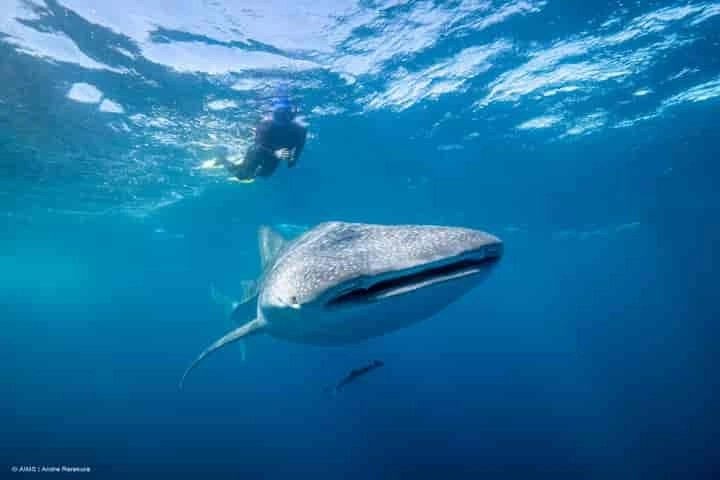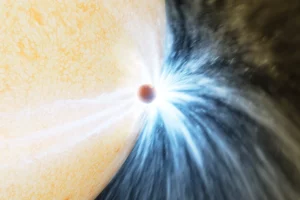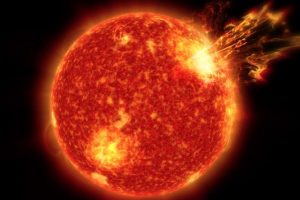Known as the gentle giants of the oceans, the whale sharks or Rhincodon typus are the biggest sharks and are known to be filter feeders who looked for tiny animals like krill to survive.
While gulping tonnes of water for the krill these creatures also consume algae and other photosynthesizing organisms, making scientists as per a report in sciencealert.com wonder as to how did this vegetation help these extant fish species.
On checking and analysing the excrement and samples of skin of these 32-foot-long creatures, scientists realised how they make use of the contents of the water they gulp in huge quantities.
Talking about this study, Patti Virtue who is a biological oceanographer from University of Tasmania said: “The poop did show that they were eating krill. But they're not metabolizing much of it." These whale sharks who are actually true sharks as they have cartilage instead of bones, seem to be drawing out a lot of nourishment from the algae.
For scientists this was a surprise. Commenting on this aspect, Mark Meekan, a fish biologist from Australian Institute of Marine Science remarked: "This causes us to rethink everything we thought we knew about what whale sharks eat. And, in fact, what they're doing out in the open ocean."
The analysis of the tissue also provided a clue to Meekan and his colleagues as it showed that the fatty acid profile was more consistent with omnivory than carnivory.
Another study done in 2019 which used samples of tissue had discovered proof that the whale sharks were eating organisms that in the food chain figured quite low. Included in these were algae and plants.
Whale sharks are not only sharks that are omnivores since Bonnethead sharks eat a lot of seagrass. They, while hunting for small creatures like mollusks, fish and crab in thick seagrass habitats, frequently ingest plant materials. Swallowing this material frequently made the body develop the ability to digest it.
Scientists feel this is what may have transpired with whale sharks too. In the past they took in the algae to eat the creatures that lived on it but with the passage of time they were able to digest and make use of the algae too.
Explaining this point, Meekan observed: "So, the vision we have of whale sharks coming to Ningaloo just to feast on these little krill is only half the story. They're actually out there eating a fair amount of algae too."
Since the whale sharks follow the surface currents to access food, they also consume the pollutants found in it like plastic. As per Meekan, plastic was present in the poop of these fishes. This poses a serious threat to these creatures as it can reduce the capacity of the gut, result in slowing down of digestion and cause them to regurgitate their food, noted the researchers in their paper.
This threatens the survival of these animals who have experienced a 62 per cent decline in population over the past 75 years.
Summing up the research which was published in Ecology, Meekan said: "On land, all the biggest animals have always been herbivores. In the sea, we always thought the animals that have gotten really big, like whales and whale sharks, were feeding one step up the food chain on shrimp-like animals and small fishes. Turns out that maybe the system of evolution on land and in the water isn't that different after all."




















